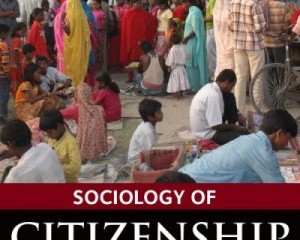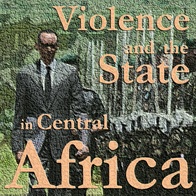
A sociology of citizenship: preliminary reflections
Social scientists most commonly view citizenship as a juridical status conferred by states upon individuals in a national community. TH Marshall’s (1950) formulation most famously helped analysts to unpack its political, civil and social dimensions.
Marshall’s formulation has since been held up to critical scrutiny for the manner in which it foregrounded citizenship as a regime of rights. In her critique of Marshall’s account, Margaret Somners (1993: 589) reminds us that citizenship refers to an ensemble of “institutionally-embedded social practices”. The idea of citizenship as practice and process has since been emphasized by many a political theorist (Beetham, 1999; Heater, 1999; Mouffe, 1996). Such perspectives have made possible further sociological investigations into citizenship. What does citizenship actually mean to the people upon whom it is conferred as a legal status? With what meanings do people who claim it, either through petition or through struggle, imbue it? The viewpoint that citizenship is an ensemble of practices enables scholars to investigate the concrete ways in which states fashion citizens (Ong, 1999) as well as the ways in which people forge their collective selves as citizens (Lazar and Nuitjen, 2013).
In examining the latter, scholars remain divided about the centrality of the state.

Why the UK needs improved caretaker conventions before the May 2015 general election
In 2010, the UK’s underspecified caretaker conventions caused the “Squatter in Downing Street” controversy, when Gordon Brown remained in office after Labour’s election defeat, pending the completion of the coalition negotiations. Pollsters predict another hung parliament in May this year and potentially protracted coalition negotiations. Yet, the country still lacks adequate rules to govern caretaker situations, which gives rise to considerable risks. Caretaker periods and their attendant challenges are universal to parliamentary democracies. The government’s mandate to exercise its executive powers stems from its ability to command the confidence of parliament. However, there are points in every parliament’s lifecycle when no government can lay claim to such support—between parliamentary dissolution and a general election; after a general election and before …

What can Rwanda’s dam building tell us about its politics?
Rwanda has just completed its first Large Dam since the genocide (traditionally defined as one over 15 metres high). The Nyabarongo Dam will become the country’s primary power station and increase Rwanda’s power generation by a third. It is arguably the first singularly big development project to be completed by president Kagame’s government, and is set to be the first of many with a further four Large Dams in the immediate pipeline and the Bugasera Airport under construction. They form part of a wider effort to build large ‘modern’ infrastructures across the country, from road improvements and increased energy production to skyscrapers in the capital Kigali.
So what does this drive towards big projects entail for Rwanda? Can it tell us something about the way in which the country is run and the values of its government? This article explores aspects of Rwanda’s flagship dam project that indicate the government’s wider approach to development politics.

A ‘crowd sourced’ constitutional convention: initiative of the Institute of Welsh Affairs
Why wait for Westminster to grant you a Constitutional Convention?, Guardian columnist Simon Jenkins asked at the IWA’s conference a week before the Scottish referendum. “Hold your own one; decide what you want, and ask for it – you never know, at this time, you might just get it” the former Editor of The Times implored his audience. So that’s what we’re doing. On January 26th we’ll be launching the first ‘Crowd Sourced’ Constitutional Convention on the future of Wales, and the UK. Thanks to dozens of small donations from across Wales, and the support of the UK’s Changing Union project, we are able to launch an eight-week experiment in deliberative democracy to run in parallel with discussions at Westminster …

Should a codified UK constitution include reform or attempt to describe current arrangements
In approaching questions of constitutional change I have learned to be circumspect. It is now clear to me – as it was not even a few years ago – that it is entirely possible to find proponents for almost any constitutional position but virtually impossible to locate any argument that has thus far succeeded in triggering principled reform. To say this is not to deny the existence of constitutional change or even reform. The history of New Labour from 1997 continuing through the Brown administration and on into the present Coalition is testament to the shifting of several – some might say rather too many – constitutional tectonic plates. But the shifting of constitutional tectonic plates either randomly or, more …

Citizens should have the power to call constitutional conventions
There is much debate about the need for a constitutional convention for the UK. The case for a convention is strong: the constitutional settlement is currently in flux with cross-party agreement to devolve further powers to Scotland; the Welsh and Northern Irish assemblies want enhanced powers; and there are calls for devolution to the regions and cities within England and/or an English parliament. Older constitutional issues such as the voting system and the future of the House of Lords remain unresolved. A great deal of ink is being spilled on the question of what form any convention should take. A concern that a new settlement will be a stitch-up amongst the major political parties and the vibrancy of the referendum …

Opening up a new British constitution
Last year the Select Committee for Political and Constitutional Reform published a bulky report with a question as its title: A New Magna Carta? The Committee’s Chairman Graham Allen MP launched it in July at the British Library. It set out three options for the overall reform of the UK’s constitution: a codification of what exists; a consolidation of existing laws and conventions into a unified framework; a written constitution. It issued a call for public responses. To encourage the imagination and inspire people the Committee also lay down a challenge: come up with your own preamble to the Constitution of the future. The air is full of talk about the constitution, about Magna Carta, about the need to renew democracy. So this is …

Can a constitutional convention offer real and radical change?
The establishment of an Irish Constitutional Convention was first proposed in April 2010 at the Labour Party conference in Galway, when then Labour leader Eamon Gilmore called for the establishment of a convention to revise the text of Bunreacht na hEireann, the 1937 Irish Constitution, in advance of the 1916 centenary. Given the outdated language of some of the articles of the Irish Constitution, many of us greeted this proposal with real excitement. The proposal for a convention was subsequently included in the Programme for Government drawn up between Fine Gael and Labour following the February 2011 General Election. In July 2012, motions were passed in both the Dáil and the Seanad (Upper and Lower Houses of the Irish Parliament) …









